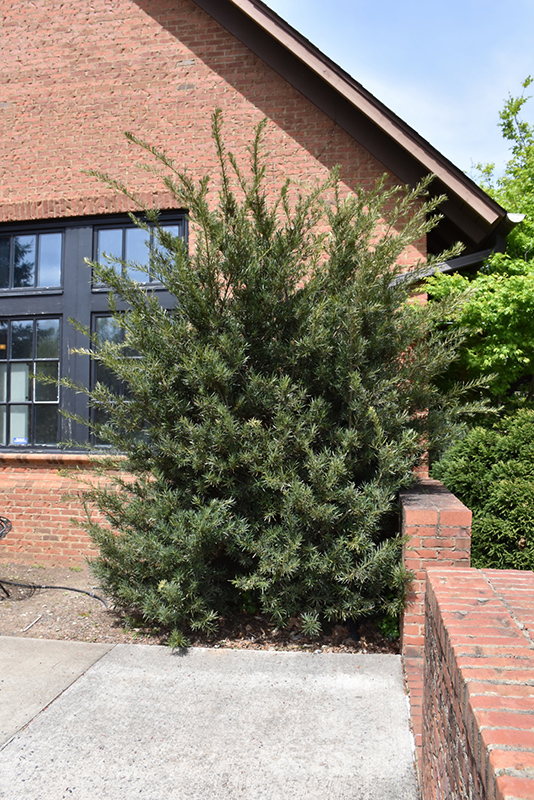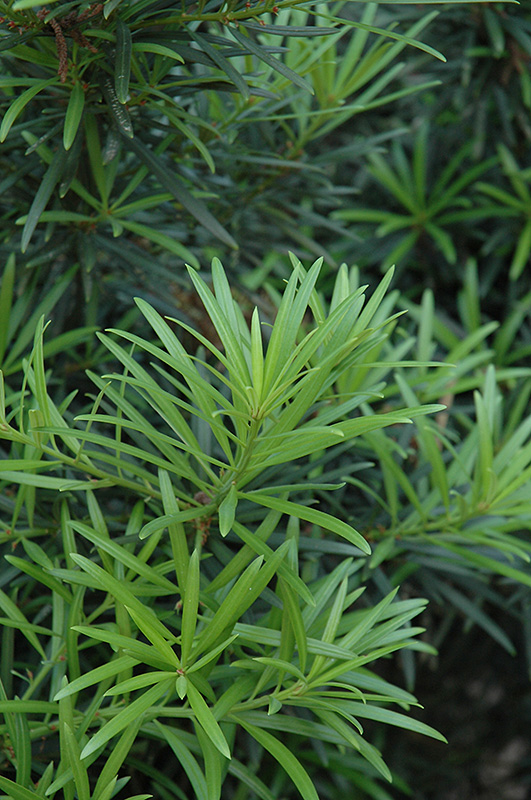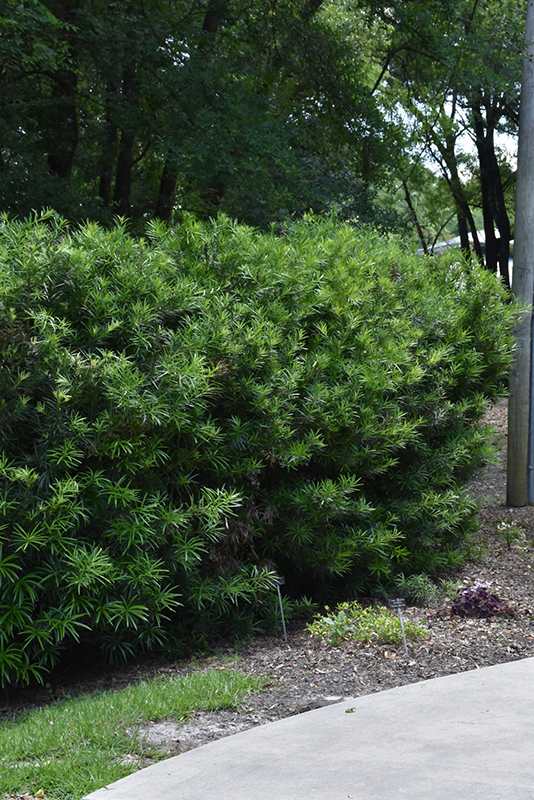Height: 30 feet Spread: 15 feet
Sunlight:
Hardiness Zone: 7b Other Names: Kusamaki, Inumaki, Buddhist Pine Description: This is a showy evergreen with an irregular columnar habit that can be massed as a screen; will tolerate low light situations; adds a wonderful texture to a border Ornamental Features Japanese Yew has attractive dark green evergreen foliage which emerges light green in spring on a tree with a columnar habit of growth. The glossy narrow leaves are highly ornamental and remain dark green throughout the winter. Landscape Attributes Japanese Yew is an evergreen tree with a narrowly upright and columnar growth habit. Its relatively fine texture sets it apart from other landscape plants with less refined foliage. This is a relatively low maintenance tree, and can be pruned at anytime. It has no significant negative characteristics. Japanese Yew is recommended for the following landscape applications; Planting & Growing Japanese Yew will grow to be about 30 feet tall at maturity, with a spread of 15 feet. It has a low canopy with a typical clearance of 3 feet from the ground, and is suitable for planting under power lines. It grows at a slow rate, and under ideal conditions can be expected to live for 50 years or more. This tree does best in full sun to partial shade. It does best in average to evenly moist conditions, but will not tolerate standing water. It is not particular as to soil type or pH. It is somewhat tolerant of urban pollution. This species is not originally from North America.![]()
![]()
![]()
![]()
![]()
![]()
![]()
![]()
![]()
top of page
Louie's Nursery Menifee - Plant Finder
Characteristics
Applications
Features & Attributes
This tool is an online resource representing many of the varieties that we carry over the course of the season, and is intended for informational purposes only. Inventory varies seasonally, so we cannot guarantee that every plant will be in stock at all times - please contact the store directly for current availability. It does not include our entire selection of plants, so be sure to visit our store to see varieties that may not be represented on this list.
bottom of page


